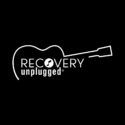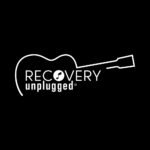Love Addiction: The Love Drug

When you’re caught up in the romance of love, it’s easy to think that your partner is the source of your happiness. There’s no denying that being with someone you love can bring feelings of joy that can be hard to replicate.
While not nearly as romantic, the truth is that there’s a perfectly logical and scientific explanation for love. In many ways, love and love addiction can feel similar to the forces driving substance use disorder.
Is Love Addiction Real?
Love addiction, while not formally recognized in the DSM-5, is a concept in psychology that refers to an unhealthy obsession with love or romantic relationships, potentially leading to negative lifestyle effects similar to other dependencies.
Also called “pathological love,” love addiction is defined as a pattern of behavior characterized by a maladaptive, pervasive, and excessive interest toward one or more romantic partners, resulting in a lack of control, the renounce of other interests and behavior, and other negative consequences. More people claim to be addicted to love than you might think.
Research puts the prevalence of love addiction at between three and six percent of the population. The condition differs from codependency because it confines the existence and application of maladaptive behaviors to romantic relationships, rather than broader familial and social connections.
Everyone can thank dopamine, the neurotransmitter regulating the brain’s rewards-based responses, for how we feel in love. It has been definitively established that dopamine drives the love we feel for our partners. On top of giving us the “warm and fuzzies,” it’s also responsible for the sense of elation when that love is reciprocated.
Those who describe being with their partner as a “high” might be closer to the truth than they realize. Dopamine is one of the main brain chemicals prevalent in drug and alcohol addiction, making users feel “high.”
Am I Addicted to Love?
Love addiction doesn’t necessarily have to include romantic love. It can also include love from family, friends, and those around us. For many people, validation, support, acceptance, and affection are the main triggers of dopamine in the brain.
It just so happens that these dopaminergic responses are often most accessible within romantic relationships.
Some of the common signs you may be addicted to love include:
- Inability to distinguish between sexually intense experiences and genuine, substantive affection.
- Needing to be in a relationship to feel “whole” or valid.
- Neglecting other areas of your life in the pursuit of romantic validation.
- Looking for a new partner while still in a committed relationship.
- Constantly struggling to maintain sexual intensity within a relationship.
- Faking interest or sacrificing your own happiness just to be in a relationship.
That feeling we get from being our partner’s “one and only” gives us a neurobiological sense of belonging and worth. Many people can and will go to extreme lengths, even shaping their lives, to pursue these feelings. When we “come down” from this feeling, it can trigger extremely negative psychological and even physical responses.
Love addiction is generally diagnosed after a prolonged obsessive preoccupation with romantic or relationship-driven pursuits. It’s often treated through a regular course of counseling and occupational therapies used to treat associated aspects of the condition like depression or anxiety disorder.
Oxytocin: Addiction and Relationships
Oxytocin, commonly known as the “love hormone” or “cuddle chemical,” holds immense significance in our relationships and influences our vulnerability to addiction. This potent hormone is released during intimate gestures such as hugging, kissing, and even childbirth, acting as a biological adhesive that unites individuals. Its effects are profound and play a crucial role in fostering human connections.
Within relationships, oxytocin plays a vital role as a catalyst for trust, empathy, and bonding. This remarkable hormone is released during intimate moments involving physical touch, sharing a meal, or engaging in deep conversation.
In romantic partnerships, oxytocin often plays a crucial role during the enchanting ‘honeymoon phase,’ when feelings of love and attachment peak. However, this influential bonding hormone also has a darker side, as it contributes to the development of addiction.
Alcohol, nicotine, and opioids can cause the release of oxytocin, forging a close association between chemical substances and personal relationships. This bond can induce unnatural desires and contribute to uncontrollable drug usage.
Are Relationship Addictions Really That Bad?
While it’s normal and healthy to desire love and companionship, relationship addiction takes this to an unhealthy extreme, leading to a range of negative impacts on one’s mental, emotional, and even physical well-being.
Emotional Dependence
Emotional dependence is a key aspect of relationship addiction. Those affected by this condition often possess an ingrained fear of solitude and may desperately hold on to relationships, even unhealthy ones, to evade feelings of loneliness or abandonment.
Consequently, they risk sacrificing their own sense of identity and independence as their happiness and self-worth become intertwined with their partner’s actions and emotions.
Unhealthy Relationship Patterns
Relationship addicts often find themselves in a cycle of unhealthy relationships. They may be attracted to partners who are emotionally unavailable, abusive, or neglectful, perpetuating a cycle of pain and disappointment. Despite the harm these relationships cause, the addict may feel unable to leave due to their intense fear of being alone.
Mental Health Impacts
Long-term dependency on relationships can have severe consequences on mental health, such as depression, anxiety, and low self-esteem. The perpetual strain and chaos of being in an unhealthy relationship can greatly impact one’s emotional well-being, possibly even escalating to more critical conditions, such as suicidal thoughts.
Physical Health Consequences
Relationship addiction can have detrimental effects on both mental and physical well-being. The stress and anxiety that accompany this addiction can manifest as serious health issues, such as heart disease, digestive problems, and a compromised immune system.
Individuals consumed by their partner may inadvertently neglect their physical health and overall well-being.
How Does Relationship Addiction Differ From Genuine Love?
Relationship addiction can be hard to distinguish from genuine love. Generally, someone with a healthy relationship will feel positive emotions surrounding the connection, while an addict may experience fear and desperation when thinking about losing their partner.
Additionally, a person in a healthy relationship is likely to have more emotional stability and greater resilience to the ups and downs of life. They will also prioritize themselves and their own needs without feeling guilty.
A key indicator of relationship addiction is an inability to be single or emotionally independent from the partner. Individuals with a genuine connection can enjoy and appreciate their relationship while still being able to maintain a sense of self outside of it.
An individual in a healthy relationship should also feel secure, trusting that the other person truly cares about them. They should feel supported and appreciated, not controlled or manipulated.
Loving Yourself First
We understand how easy it can be to let yourself get lost in the person you’re in love with. The steady supply of dopamine your relationship provides you can be hard to give up.
It’s important to make sure that you love yourself the way you are before engaging in a new relationship. This is especially true if you know that you might struggle with love addiction. It’s impossible to have a healthy relationship with someone else if you don’t have a healthy relationship with yourself first.
The many effects of love addiction have been romanticized in virtually every aspect of media and popular culture. However, the reality is that these reactions often lead to self-destructive behaviors like drug or alcohol abuse. When you’re accustomed to having someone else fill the hole inside of you, drugs are only one step further.
If you or someone you care about is suffering from relationship-related substance use disorder, we’re here to help you.
We take our music-focused treatment for addiction very seriously, so we are going to hold our content to the same precision standards. Recovery Unplugged’s editorial process involves our editing safeguard and our ideals. Read our Editorial Process.


